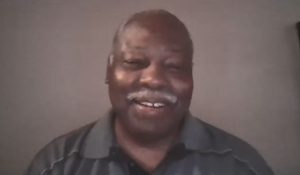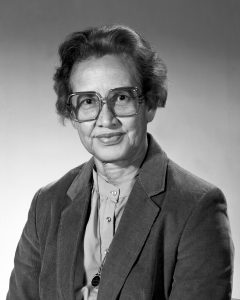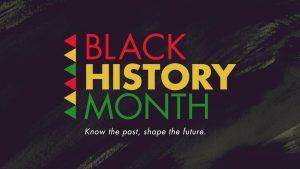MYNARIC: Hi Ralph, could you talk us through your career path to date?
RALPH: Well, I’ve had a very varied career. I should say first real professional job was working for the Boy Scouts where I was a scout executive with the Boy Scouts for a while. It’s a long story! And then from there I went into the newspaper business. I worked in advertising for a number of years and handled small merchant accounts and then up to large accounts. That was a great experience – one of the best experiences I ever had and from there I went into banking.
And I was involved in the electronic banking industry. At the time I had a computer background, and so they recruited me out of the newspaper to help introduce things like ATMs and point of sale devices and all that sort of thing. I did that for about eight years and then moved to California and got into high tech world, spending most of my time on software/database. Eventually I got into astronomy, and that’s another long story!

Ralph Emerson, VP, Account Management
MYNARIC: And you had your first introduction to the world of optical communication in your previous job. Is that correct?
RALPH: Yes. In my two prior jobs. I was at a NASA trade show where an engineer from Northrop Grumman approached me. We were displaying some large telescopes at the time, and he said, “Are you guys into laser communication?” Well, I didn’t even know what he was talking about at that point but that was my intro and the laser communication. We started working with a number of U.S. prime contractors we specifically got into ground stations primarily where large telescopes are advantageous.
MYNARIC: As you know, we are doing this interview as part of Black History Month. So let me ask you, have you come across any particular problems being a black engineer? Mynaric is a very diverse company – with employees from over 30 countries – but when we go to trade shows and, look at the industry in general, it’s very male and very white. Do you think it’s slightly harder if you’re a person of color to break into the industry? Have you faced any of these problems yourself?
RALPH: Well, personally, I haven’t run into any major problems. You know I’m often the only black person in many, many situations. That’s been true for most of my career to be quite frank. But as you already know, African Americans have had a very difficult history in this country. And, you know, in the early days of my life I ran into a lot of issues because I grew up in the fifties and the sixties, so I grew up in segregation. So for me a I don’t look back… it is history! Today, I see a lot of advances.
When I was a young child, most African American adults around me could neither read nor write. Today, many have advanced degrees. Certainly almost all have high school or some college education. We’ve made, I think, tremendous strides. I mean, there’s still a very long way to go. But I think in general, we have made many improvements in the last 50 years.

Katherine Johnson (1918-2020)
Mathematician and NASA employee who work was essential to the first, and subsequent, space flights
Mynaric’s main meeting room at its German HQ is named in honor of her
As for the companies where I worked, I was often the first Black officer or vice president. I have learned that diversity is extremely important because we clearly grow up with different outlooks on everything, depending on our race or ethnicity. People coming from different backgrounds really can make a huge difference and if you are a global business, like Mynaric, it’s even more important.
There’s a tremendous untold history of – particularly – African Americans in science and engineering It’s not like we haven’t contributed it’s just that most of their contributions have not really been noted, documented fairly so there are very few patents and all that sort of thing.
I think now, with more people looking at history, researching and highlighting contributions much will come to light. In the near future, people will look at African Americans quite differently.
MYNARIC: That’s good to hear. I suppose one of the real benefits of Black History Month is that it informs people that otherwise wouldn’t have any knowledge of this at all: what an important part Black people have played not just in engineering, but all industries in United States. You say thatthings have improved in the last 50 years but would you still say that there are still barriers? Is there still sort of an underlying discrimination?
RALPH: I think it’s generational with social circles and networks playing a significan part – if you go to the right schools, you meet the right people, etc. Even with all the disparity if you look at entrepreneurialism, for example, you see that results of surveys on entrepreneurialism, these survey show that African Americans turn out to be two or three times more interested in entrepreneurialism than other people in the United States. In fact, African Americans are the most interested in entrepreneurialism of any ethnic group in the entire world.

For next year’s Black History Month in the USA, Mynaric will be offering internships to African American engineering students
Many African Americans do start their own businesses and are very creative. The problem is, is that we don’t have significant capital/equity because we didn’t have the income in our in our community over the centuries. You take Bill Gates or even Elon Musk or Henry Ford, they were able to get into business because they had family and friends who invested in them, in some cases over and over again until they were successful. African Americans don’t community capital, and that is the huge difference. So as a consequence, you find African American today succeed in businesses that require very low capital investment such as service, entertainment or sports. The lack of capital has been a major barrier for African Americans to create manufacturing, engineering or technical firms.
MYNARIC: Is this slowly getting better? Are there initiatives out there that you think are addressing this imbalance – this disparity between equality of opportunity that exists?
RALPH: Well, there’s a lot of talk about it, but there hasn’t been really too many successful programs. During the Obama administration they actually opened the door to create access to capital in very radical ways, which have still yet to emerge because of the last four years.
But I think there’s a lot of work to be done there. There’s discussions of reparations and things like this to change the capital gap. I think on average, in the United States, the average white family has about $100,000 in savings or equity. The average African American family has less than $5,000 so there’s a huge gap, and that’s the difference.
This gap is the reason you don’t see as many black businesses because we don’t have the capital.
MYNARIC: Is it fair to say that it is not just a question of financial investment but also investment in people? What can be done to make it a more level playing field for Black job applicants and try and redress this imbalance.
RALPH: Look at history – particularly NASA, for example. President Johnson was given the responsibility of creating NASA. Johnson was a man of the South and he wanted the South to become more industrial… so many of the NASA facilities that NASA are all in the South from Texas, to Alabama, to Florida.
Johnson also wanted to get rid of discrimination toward African Americans. And as a consequence, Johnson required that NASA reach out and recruit African Americans. So if you go to any NASA meeting one of the things that you’ll notice is that, unlike other technical groups, about 15-20% of the attendees will be African American. And they’re not just in the meetings, they are often running the meeting.
The last few NASA meetings that I attended, this was the case. Under Obama, the Administrator was African American. And how did that happen? It happened because they literally went out to recruited African Americans and brought them into the fold.
If you look at the United States military you’ll find it was Harry Truman who integrated the military. There had been Black units since the Civil War, but none had ever been integrated. Truman thought “this is ridiculous” and – even though it was an election year – he decided that he was going to integrate the U. S. Military. Since then, the U. S. Military is the most successfully integrated organization in the United States… from the Defense Secretary to all the top ranking jobs, African Americans have held positions.
If you make a plan, if you decide that this is what you’re going to do – and you literally go out and look for people, you will find them. The historically Black colleges produce over 50% of African American engineers and scientists. So obviously that’s a unique source to go and look for them. But almost every big university now have lots of African Americans, and so one can find talented African Americans.
If a business wants to have African Americans or Asians or anybody else, for that matter, in its organization, it can find talented people. They can bring them in. Sure, everyone is not going to work out perfectly. But you can find those people that can make the organization thrive.
MYNARIC: Our last question to you is what would your advice be – given your journey starting out at a tie of segregation – to young Black students who are looking to break into engineering or aerospace? Do you have any personal words of encouragement that you could give them to improve their chances?
RALPH: I think today it’s so different from when I was young. There aren’t as many barriers today: however, there are of course psychological barriers. You also know there are some prejudiced people in the world obviously, but I find that they are a small proportion.
I think what has to happen is for African Americans to decide that these technical fields are fields that we can compete and succeed in.
I don’t think that is there just yet. As I said, if you’re young and African American and you look at the successful people that look like you, they’re mostly in entertainment and sports, and that has got to change. So if people decide they could do something, they can.
I think that once we see a Bill Gates or Elon Musk who turns out to be African American, the world will change quite a bit. Look at the political situation in America. When I was young, we had just one Congress person and one Senator – Senator Brook from Massachusetts.
Since the Civil War, the number of African American politicians had been very small. But look at it now: look how many cities where the Mayors of those cities are African American. Look how many African American Congress people there are. Look now at the number of Senators. People forget that Barack Obama was only the fifth-ever elected Black senator in the United States. Look at the difference now. Now we have a vice president. We have lots of African Americans running for office.
So I think what has to happen is that there has to be an effort on the part of technical companies to go after African Americans or help them start spin off businesses. As I said, we do have really a rich history and engineering and technical fields. It’s just that no one knows about it. We need to go after African Americans in High School and college and bring them into intern programs get them involved in areas that they aren’t involved in. And soon as more people see African Americans in those roles, it will change.
MYNARIC: Those are great words on which to finish, Ralph. Thank you very much for sharing your time and insights with us.
For Black History Month in 2022, Mynaric will be offering internships for aspiring Black engineering students in the United States












 Copyright 2023 All rights reserved.
Copyright 2023 All rights reserved.